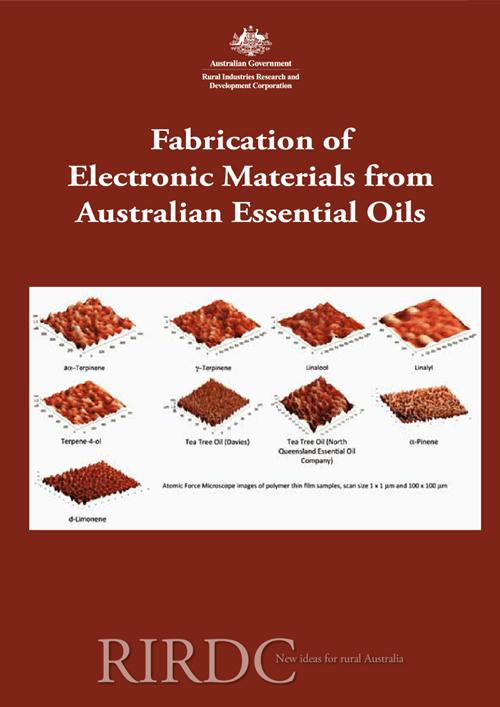Indian sandalwood pruning management to minimise fungal attack
This RIRDC report describes the potential impacts of pruning on the heartwood rot fungal diseases within Indian sandalwood (Santalum album) in Australia associated with pruning....

34 pages
Published: 20 Oct 2010
Author(s): Mohan Jacob, Kateryna Bazaka
Download report PDF
DownloadPurchase a hard copy - AUD $45.00
This RIRDC publication reports the findings and recommendations of the RIRDC funded study, “Fabrication of Electronic Materials from Australian Essential Oils”. This project was undertaken to facilitate an expansion of the Australian Essential Oils Industry through the development of novel applications in the Electronic and Bio-Materials Industries.
The findings presented in this report will provide value broadly across the Australian Essential Oils Industry, and more particularly to the growers involved in the production of tea tree, lavender and other essential oils.
Several essential oils, namely tea tree oil, sandalwood oil, eucalyptus oil, alpha-pinene, d-limonene, lavender oil (a separate PhD project) and five major components of tea tree oil were tested. With the exception of sandalwood oil, all oils investigated were successfully polymerised.
Importantly, this project determined that it is possible to use an environmentally friendly, inexpensive process of polymerisation to fabricate materials from essential oils in a reproducible manner with properties required by the optics, electronics, protective coatings, and bio-material industries.